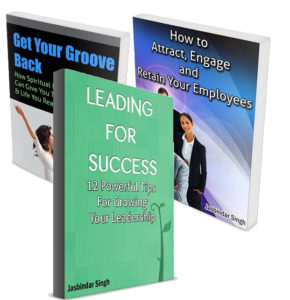“When you become a leader, you are not entitled any more to display the two ends of the emotional plane, because everything you do and say carries a five times more powerful message……One of the first things to do in a senior role when something bad really happens is to remain calm.”
– Alex Malley, CPA Australia and author of “The Naked CEO”
From time to time, we all get confronted with situations, which act as a trigger for us. The sense of calm is gone. Instead there is a rising wave of feelings including irritation, frustration and perhaps anger.
The interesting thing is that the situation which may have triggered us often has little to do with the current reality.
More often than not, it activates a part of the brain, which has memories of the distant past, which we are still carrying with us.
When we feel our core values such as a sense of justice, fairness, respect has been crossed – than we react, almost automatically. The fight / flight mechanism gets activated.
Regardless of the origins of our reaction, what we do know is that keeping our composure serves us better not just in the moment but longer term.
Having just enough awareness, control or mindfulness to not react and say things, which once they leave our mouths become irretrievable!
And can we not all remember a time when we have been totally been in an “amygdala hijack moment”, done this and regretted after?!
Here are 7 tips to help keep your composure:
BEFORE
1) Practices – Regular practice of disciplines like meditation, yoga, breathing exercises or exercise and gym will help build resilience and unload stress on a daily basis so “our cups don’t spill over.”
2) Get another perspective – If there is an issue that is bothering you – talk through issue with a trusted colleague, friend to get another perspective on the matter and before things build up.
We are not always right and other insights might help us understand the other party and get a better outcome. If there is a courageous conversation in the wings, do some role plays beforehand.
DURING
State management tips:
3) Recognize – as you get the thought or feeling in your body that the situation is seriously challenging and you find yourself flaring up to react, try this instead.
STOP, PAUSE AND RECOGNIZE it for what it is.
Buy time, count to ten, better still leave the room if you can ( and come back later).
It is okay to say that you need to take a break and come back to it, if things get heated. We make the mistake of keeping going when we need to re-group.
You want to be able to keep your cool and act not react.
4) Breathe – Become conscious of your breath. Focus on your breathing.
One breath at a time.
Feel the air in the nostrils, in the throat, the ballooning of your stomach and then let go, let go……try for at least six seconds.
Slow steady breaths calm the body and mind.
The above two steps can be done within minutes as you gather and re-focus yourself.
You are buying time as you gain your composure.
Communication tips:
5) Impact and intent. Remind yourself that what you might be reacting to may not be the other party’s intent at all.
This needs to be established.
As authors David Stone et al remind us in their excellent book Difficult Conversations, impact does not equal intent.
“Seek first to understand” as Stephen Covey so eloquently put it!
6) Acknowledge – An issue may come up that needs addressing but the time, place, manner is not be right. Be respectful of this.
Try and get agreement with the other person to follow this up with a meeting time when you can both talk about it.
7) Openers – An opener could be – “Something just happened at the meeting that I would like to check out with you. I really value our relationship and want to continue to work effectively with you….”
Or could you help me understand what you meant when you said that my team was not performing….?
AFTER
Thank the other person and acknowledge yourself for having handled a challenging situation with greater calm than you may have before.
Know what your triggers are and develop your resilience and other strategies to keep your composure, career or indeed relationship!
As a leadership coach, team facilitator and speaker, I love working with organisations and savvy managers and leaders to grow their emotional intelligence (EQ/EI) and engage their teams better. I also speak to different audiences on such topics including finding and living our mojo, emotional intelligence and leadership and life transitions.







 Follow Jasbindar on Twitter
Follow Jasbindar on Twitter



